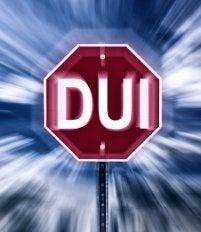-
Getting a Fair Settlement for Your Personal Injury
 Personal injury claims near Annapolis can be complex, and you need an experienced attorney who will fight for your right to compensation . If you have been hurt, you deserve to be paid damages. Damages can cover your current and future medical bills, loss of income, and emotional pain and suffering. With the right attorney, you can negotiate a high settlement with an insurance company and avoid a prolonged trial. Here is how to get the money you deserve after a personal injury.
Personal injury claims near Annapolis can be complex, and you need an experienced attorney who will fight for your right to compensation . If you have been hurt, you deserve to be paid damages. Damages can cover your current and future medical bills, loss of income, and emotional pain and suffering. With the right attorney, you can negotiate a high settlement with an insurance company and avoid a prolonged trial. Here is how to get the money you deserve after a personal injury. Seek Medical Care
The first step to getting compensated justly is making sure you immediately seek medical care. When you meet with a doctor, never exaggerate your symptoms, but make sure to tell your physicians about all areas of pain. Your ailments and symptoms must be properly documented for an insurance company to pay for your care. It is also an important part of getting the best medical care possible and beginning your road to recovery.
Document Your Damages
Personal injury law firms advise clients to begin conducting an investigation and collecting paperwork before even meeting with an attorney. Make sure to gather and organize all witness statements, police reports, and medical records. You should also take photographs of your injuries and the accident scene. Remember, insurance companies have highly paid investigators working on their side. These documents will be essential to building the best case possible.
Consult an Attorney
Most people never think about personal injury law until they are hurt. But personal injury claims are extremely complex, and only an attorney who is well-versed in applicable state law and knows the court system can help you determine your best course of action. An insurance company will push you to settle without talking to a lawyer, but you need someone who will protect your rights throughout the process. A personal injury lawyer will evaluate your claim and review the police and medical reports before giving you an informed estimate of your caseâs value.
-
Understanding Negligence
Negligence is an essential concept in personal injury law in Annapolis . Negligence refers to any conduct by a person or organization that falls below the standards established by law for the protection of others against unreasonable risk of harm.
In tort law, also known as personal injury, a plaintiff and her attorney are required to prove that the defendant owed a duty to the plaintiff. Next, the personal injury lawyer must show that the defendant breached that duty by failing to conform to the required standard of conduct, and that the negligent conduct caused harm to the plaintiff. This standard in personal injury law helps the court determine whether the defendant should be legally responsible for the victimâs injuries. If a reasonable person would have or should have done something different, there is a good chance the plaintiff will be compensated for her injury.
-
A Look at Maryland’s DUI Laws
 If you have been charged with DUI (driving under the influence of alcohol) or a DWI (driving while intoxicated) your first step should be to contact a criminal defense attorney in Annapolis. Maryland drunk driving laws are complex, and DUI is a crime that carries stiff penaltiesâand potentially jail time. While a defense lawyer can help you determine your best legal course of action, it is a good idea to familiarize yourself with the law with this brief introduction to Maryland DUI and DWI laws.
If you have been charged with DUI (driving under the influence of alcohol) or a DWI (driving while intoxicated) your first step should be to contact a criminal defense attorney in Annapolis. Maryland drunk driving laws are complex, and DUI is a crime that carries stiff penaltiesâand potentially jail time. While a defense lawyer can help you determine your best legal course of action, it is a good idea to familiarize yourself with the law with this brief introduction to Maryland DUI and DWI laws. How Much Do You Have to Drink to Be Charged?
Anyone under 21 years old can be charged with a DUI or DWI if their blood alcohol level is .02% or greater. Drivers of legal drinking age can be charged with DWI if their blood alcohol content is between .04% and .08%. A DUI can be charged for drivers over .08%. Commercial drivers are held to a stricter standard, and may be charged for drunk driving if their chemical tests indicate a BAC at or over .04%.
Will I Go to Jail if I am Convicted?
Possibly. In Maryland, even first-time DWI offenders can face up to two months in jail, and a first DUI offense can carry a sentence of up to one year. After a second DWI conviction, drivers may spend a year in jail, while a second DUI can put you behind bars for up to two years. Added on to a criminal record and thousands of dollars in fines, it is easy to see why hiring a criminal lawyer is essential.
What Are the Legal Consequences if I Refuse a Breathalyzer?
Law firms generally advise their clients to take a chemical test when asked. After being pulled over, a police officer will generally first conduct a field sobriety test. The office may then ask you to submit to a breath or blood test to determine how much alcohol is in your system. Because Maryland operates under implied consent law, refusing to take a chemical test results in an automatic license suspension.
-
What To Do After a Car Accident [INFOGRAPHIC]
Even if you consider yourself a safe driver, accidents can happen anytime youâre on the road. If you find yourself in an auto accident, itâs best to remain calm even though itâs a stressful situation. Remember not to admit fault or apologize, regardless of whether you think you caused the accident. After checking yourself and the other vehicle for any injuries, get the other driverâs information, including his or her name, phone number, and insurance info. Take pictures of the accident scene before you move your cars in case you need proof of what happened. Be sure to contact an accident lawyer in Annapolis who will fight for your rights and help you get what you deserve after a car crash. Take a look at this infographic to learn more about what you should and shouldnât do after a car accident. Share with your friends and family, and stay safe on the road.

-
Establishing a Product Liability Case
If you have been injured by a defective product, you will want to speak to a personal injury lawyer serving Annapolis to determine whether you have a case. Unlike other types of personal injuries, you may not have to prove that the designer or manufacturer of the product was negligent in order to bring a product liability case. Defective product cases may fall into the category of strict liability, which means that all you have to do is present proof that you were injured and proof that the product was defective. In order to win the case, the designer or manufacturer will need to establish that there was no defect in the product that led to your injury. To learn about the different types of product liability, watch this informative video.
-
What to Do If You Are Charged with Domestic Violence
 Domestic violence, or any violent crime against a spouse, child, or significant other, is a serious criminal offense. Unfortunately, criminal defense attorneys near Annapolis are all too familiar with cases in which a defendant is falsely accused of domestic violence. If you have been charged with this criminal offense, you need a defense lawyer who is experienced in handling these tough cases. Here is how you should proceed after being charged:
Domestic violence, or any violent crime against a spouse, child, or significant other, is a serious criminal offense. Unfortunately, criminal defense attorneys near Annapolis are all too familiar with cases in which a defendant is falsely accused of domestic violence. If you have been charged with this criminal offense, you need a defense lawyer who is experienced in handling these tough cases. Here is how you should proceed after being charged: Contact an Attorney
Many people who are falsely accused of crimes believe that the other party can be reasoned with. Sadly, even if the wrongful accuser can be persuaded to tell the truth, a district attorney can prosecute the case with or without the alleged victimâs testimony. Only an attorney can make sure your rights are protected throughout the process. Your first step after being charged with domestic violence should always be to contact a criminal defense lawyer who is familiar with the laws and courts of your state.
Consult with Family Members
After being falsely accused, it is vital to speak to family members. While you may initially feel embarrassed to discuss personal details of your relationship, your significant other has most likely already begun to spread falsehoods about you. If your friends and family hear from her and you do not defend yourself, they may end up as witnesses for the prosecution. By keeping your loved ones informed about your side of the story, they will be more likely to believe you and offer their support.
Protect Your Valuables
Finally, make sure to secure all your valuable items, including cell phones and computers and their passwords. A false accuser can may log into your email account or access your phone to send threatening messages to herself, which she can later submit as evidence to the court of your abuse. Accusers can also resort to stealing car titles, birth certificates, or driverâs licenses just to make your life more difficult and distract you from your criminal case. Make sure you have all copies of keys to your home, garage door, vehicle, and mailbox.
-
What to Do After a Truck Accident
 A truck accident can be a traumatizing event that leaves victims with serious personal injuries. If you have been involved in a truck accident, you should first get the medical care you need and then immediately contact a personal injury lawyer in Annapolis .
A truck accident can be a traumatizing event that leaves victims with serious personal injuries. If you have been involved in a truck accident, you should first get the medical care you need and then immediately contact a personal injury lawyer in Annapolis . If your injuries are not severe, you should try to document the accident as soon as possible. That means taking photos of any damage to your vehicle and property and speaking to any witnesses on the scene who can verify what happened. You should also obtain the name, license plate number, and insurance information of the driver who caused your personal injury, as well as contact information for the witnesses.
You will need to inform your insurance company of what happened, as well. But when you speak to your insurance company, you should always have your attorney present. Also, never admit fault or sign any papers without talking to your lawyer.
-
What Happens When You File a Personal Injury Case?
If you have been hurt in an accident and have a personal injury claim in Annapolis , your first step should always be to contact a personal injury lawyer who has extensive experience with the Maryland court system. After you meet with your attorney, he or she will initiate a case on your behalf, conduct fact-finding and discovery, decide whether or not to go to trial, and help you collect any damages. Read on to find out more about the different stages of a personal injury case.
Initiating a Case
After you explain your accident and injuries to your lawyer, she will create a contract explaining the terms of your agreement and allowing her to represent you in court. Next, she will file a personal injury claim, or complaint, with a judge. The complaint explains all your charges against the individual or company and the legal basis for those charges. It also provides the defendant with notice that he is being sued.
Preparing for Trial
Next, your lawyer will gather evidence, including medical records, police reports, and other important documents. She will also ask the defendant to produce documents that pertain to your case and may request written admissions to certain questions called interrogatories. These answers can help the court get a better idea of how the defendantâs negligence caused your injuries.
Considering the Options
When the fact-finding process is complete, your lawyer will meet with you to discuss whether or not to proceed to trial. While some cases go to trial, many plaintiffs and defendants are interested in settling to avoid the lengthy and sometimes expensive process of litigating a case. Sometimes, clients with serious personal injuries prefer to settle and have their medical and other expenses paid rather than risking a jury trial.
Collecting your Damages
If there is a judgment in your favor, the defendant is usually punished by having to pay damages. This money is also intended to cover your current and future medical bills, reimburse you for any time you had to take off work due to your injuries, and compensate you for general pain and suffering.
-
Questions to Ask Your Criminal Defense Attorney
 When you meet with a criminal lawyer near Annapolis, youâll likely have a lot of questions about your case. The questions you should ask depend in part on whether youâve already retained the services of the criminal lawyer or whether youâre meeting the attorney for an initial consultation. If itâs the latter case, your questions will probably be geared toward finding out more information about the credentials of the criminal lawyer . If itâs the former case, youâll likely ask more questions about the charges against you.
When you meet with a criminal lawyer near Annapolis, youâll likely have a lot of questions about your case. The questions you should ask depend in part on whether youâve already retained the services of the criminal lawyer or whether youâre meeting the attorney for an initial consultation. If itâs the latter case, your questions will probably be geared toward finding out more information about the credentials of the criminal lawyer . If itâs the former case, youâll likely ask more questions about the charges against you. Do You Have Experience with Cases Similar to Mine?
During an initial consultation with a criminal defense attorney, itâs always a good idea to ask if he or she has previously handled cases that involved the charges youâre facing. When you hire a criminal attorney with this specific type of experience, you can rest assured that he or she will be very familiar with the applicable laws and defense strategies.
What is Your Approach to Case Management?
Case management pertains to the logistics of your case. For example, case management involves which attorneys or support staff will work on your case, how often youâll be updated, and how you should get in touch with the law firm if you have questions. Many people who are facing criminal charges prefer to work with law firms who have the resources and experience of a large firm, but the personal touch of a small firm.
Which Defense Strategies Might You Use?
After you hire a criminal lawyer, he or she will delve into the details of your case. You can expect your lawyer to review all of the evidence against you, interview you, and interview possible witnesses. During the course of the investigation, your criminal lawyer will determine which defense strategies might be most effective.
Should I Accept a Plea Deal?
Only you can make the decision whether to accept a plea deal. This means that you would plead guilty, presumably in exchange for a reduced sentence. Some defendants prefer to plead guilty to avoid a harsh sentence that may be handed down if they are convicted at trial. Talk with your criminal lawyer about the strength of the evidence against you, the merits of your case, and whether the prosecutor is offering a favorable plea deal.
-
Dealing with a Police Stop
Unfortunately, both residents and criminal lawyers near Annapolis know that being stopped by the police is no longer a rare event in Maryland. If you are stopped by a police officer on the street, you do need to provide your name and should give a form of identification if you have it on you.
To ensure your own safety and prevent being charged with a criminal offense, cooperate as much as you can. But you should also make sure to get the police officerâs name and look around to see if there are any witnesses. That way, you can call upon people later on if you need someone to corroborate your story of an illegal interrogation or unnecessary police violence. Remember to remain calm, avoid confrontation, and always keep your hands where they can be seen.
